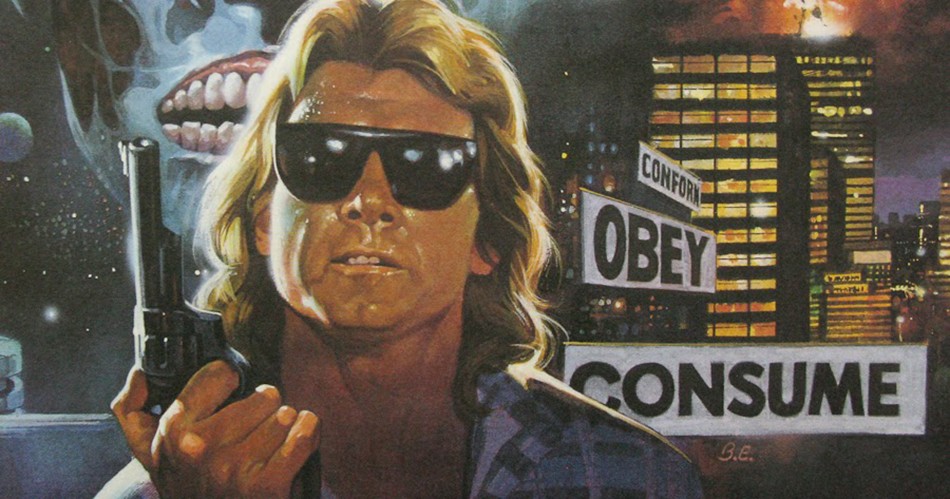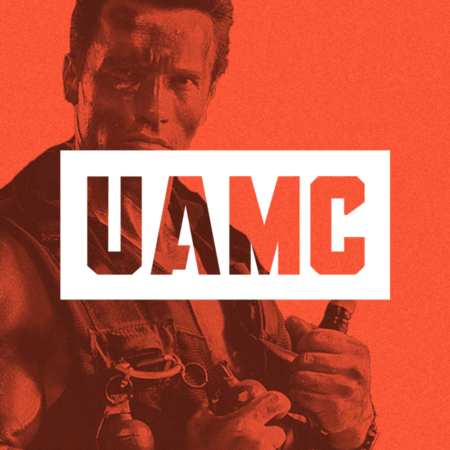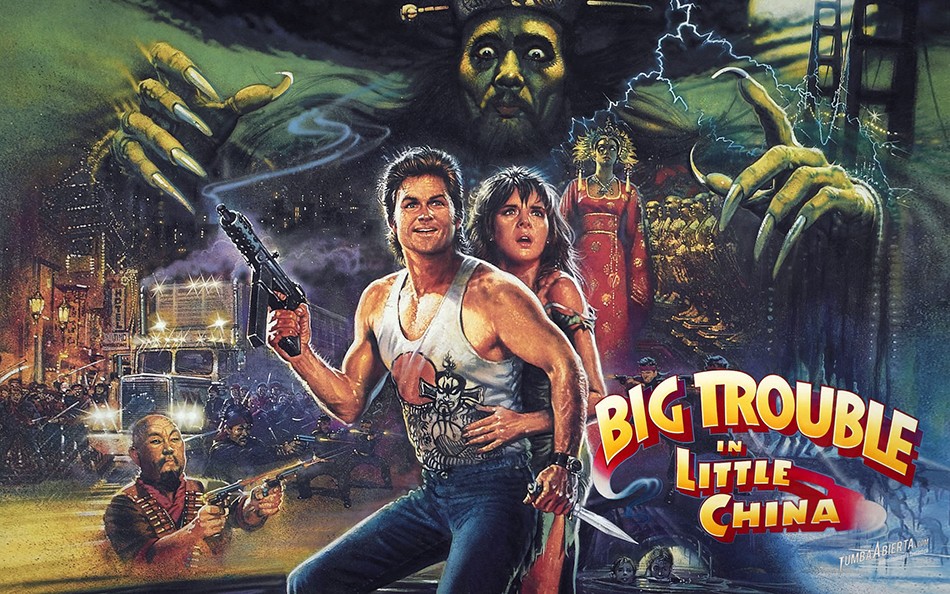Part 4 of our UAMC series exploring the ultimate action movies from legendary director John Carpenter.
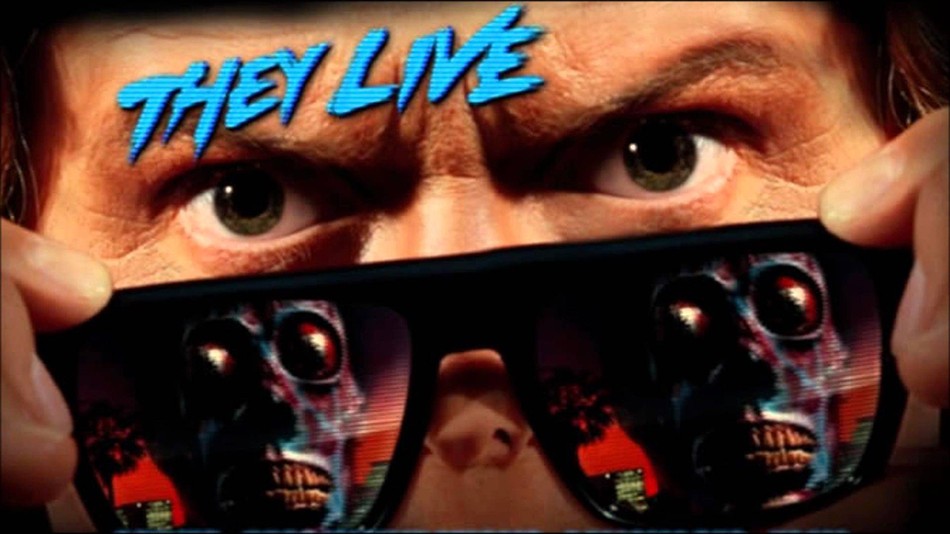
“The whole deal’s like some crazy game. They put you at a starting line, and the name of the game is ‘Make It Through Life,’ only everyone’s looking out for themselves and looking to do you in at the same time.”
Economic inequality in every part of society, media attempting to control the way we think, militarized police patrolling our cities, and conspiracy theories spreading unhindered – They Live is a movie that is more relevant now than perhaps it has ever been. In a direct response to the 1980s Reagan era, Carpenter went from making anarchic films like Escape from New York to straight-up anticapitalist criticism in They Live. When asked about the movie in a 2015 interview, Carpenter said, “It’s a documentary. It’s not science fiction.”
The Carpenter Series Part 1: Fighting Zombies in ‘Assault on Precinct 13’
UAMC Reviews ‘They Live’
They Live follows an unnamed working-class protagonist credited as John Nada (Roddy Piper) who finds a job as a laborer and meets Frank Armitage (Keith David), who brings him to an unhoused community. The local TV is often interrupted by a pirated signal warning viewers that the human race is being lied to and controlled by outside forces. Piper locates the signal to a nearby church where he finds sunglasses that grant him the power to see that the city’s upper class is made up entirely of skeletal aliens.
Casting Roddy Piper as opposed to a recognized movie star allows the film to maintain its focus on a simple, working-class protagonist. This helps get Carpenter’s pointed populist and anti-establishment messaging across. Initially, Roddy Piper’s character naively says that he believes in America, and that if he follows the rules, good fortune will befall him some day.
The Carpenter Series Part 2: Rebelling Against the State in ‘Escape from New York’
Roddy Piper’s Simple, Working-class Protagonist
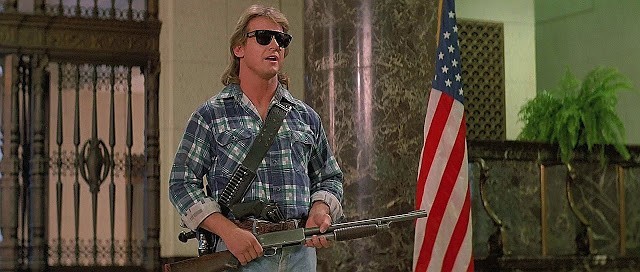
However, we see how this will never be the case. Early in the movie, Nada looks worn down and tired. He has had to endure challenge after challenge in his life and is desperate for a job in Los Angeles after the economy in Denver collapsed. Even the unhoused community he stays at in the beginning of the film is bulldozed by the police once the authorities realize that revolutionaries had set up base there.
Nada never considered the possibility of an organized effort by the upper class to exploit working people. Carpenter depicts the upper class as aliens, beings that lack morals and any sense of human decency. The working class suffered a deteriorating standard of living while being fed ideas like “meritocracy” and the ideal of “individualism.” Much like the political messaging in The Matrix, John’s sunglasses show actual reality. Billboards and TV commercials selling specific products bear subliminal orders to “Consume,” “Obey,” and “Marry and Reproduce,” while money says “This is your god.” Carpenter denies us any subtlety, with reality displayed in black-and-white. When Nada realizes his plight, he snaps, mercilessly gunning down aliens at the bank.
But, How Ultimate is it?
Then comes the big action set piece – a six-minute brawl between Nada and Frank over putting the glasses on. The scene is brilliant in showing us every heavy blow that they land on each other. It feels real as they both take time to recover after getting hit. Notably, the fight is between two members of the working class over seeing the true America. Carpenter may be telling us that the upper class has devised systems that pit members of the working class against each other. They end up fighting amongst themselves instead of revolting against the wealthy.
In this way, They Live acts as a counterculture-left film. It was released a few days before the 1988 presidential election, but even if it had been released earlier, it most likely would not have had the intended impact as George H.W. Bush easily won the election. Like many of Carpenter’s projects, the film bombed at the box office and didn’t receive its due praise until much later as its prophetic nature became more apparent.
On its surface, the movie is quite dated, but if we dig into the deeper elements of the film – the oppression of the working class by the elites, the rule of the wealthy class over the government, or the police as a brutal institution to carry out this exploitation – it hasn’t aged at all.

